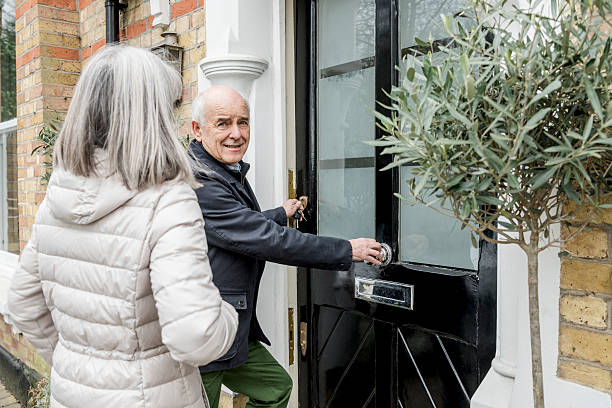The simple act of practicing basic manners can create positive connections and foster respect in a world that often overlooks them.

The simple act of practicing basic manners can ripple outward, turning fleeting moments into lasting bonds and infusing everyday interactions with warmth and respect. When someone takes the time to acknowledge another person’s efforts—even in the smallest ways—it reminds us that we’re all part of a shared human experience, deserving of kindness and consideration.
Yet in our always-on world, it’s all too easy to let these simple courtesies slip away. Still, the core of meaningful connection hasn’t changed: it’s built on respect, empathy, and the unspoken promise that we’ll treat each other well. Holding onto these basics helps us slow down, notice one another, and forge genuine bonds—even when life feels hectic.
1. Say “Please” and “Thank You”

Expressing gratitude and humility with these two little phrases can transform the tone of any interaction. “Please” softens requests, reminding both speaker and listener that we’re asking rather than demanding. “Thank you” acknowledges another person’s effort, however small, and affirms that their time and attention matter.
Over time, these habits create a positive feedback loop: people respond in kind, and moments of genuine appreciation become more frequent. Rather than slipping into transactional exchanges, relationships deepen as each person feels seen and valued, simply because their kindness didn’t go unrecognized, says Patricia Napier-Fitzpatrick at The Etiquette School of New York.
2. Don’t Interrupt or Talk Over Someone

Giving someone the floor shows that you truly value what they have to say. By listening fully before responding, you allow their ideas to unfold naturally and demonstrate respect for their perspective. Interruptions, even if unintentional, can shut down conversation and leave people feeling dismissed, as mentioned by Casey Rackham at BuzzFeed.
Moreover, when you wait your turn, you often gain clarity on what’s being discussed and can craft more thoughtful responses. This patience fosters a collaborative atmosphere where everyone’s voice contributes to a richer, more balanced dialogue.
3. Put Your Phone Away During Conversations

Put Your Phone Away During Conversations
In an age of constant notifications, consciously setting your device aside signals that the person in front of you is your priority. It’s easy to get pulled into the digital whirlwind, but resisting the urge to glance at your screen shows genuine presence and respect, as stated by Theresa Walker at The Orange County Register. When you’re fully engaged, you pick up on subtle cues—tone, expression, body language—that deepen communication.
Without the distraction of alerts, conversations flow more naturally and connections feel more authentic. People remember how you made them feel, and being fully present says, “I value this time with you,” in a way that glances and half-listening never can.
4. Hold the Door for Others

Hold the Door for Others
A small act that costs almost nothing but can brighten someone’s day, holding the door creates an instant moment of shared courtesy. Whether it’s a colleague laden with bags or a stranger moments behind you, this gesture whispers, “I see you, and I’m happy to help.”
Repeating these little acts of kindness reminds us that mutual consideration is the backbone of community. In a world that often feels rushed and impersonal, such mindful moments slow us down and reinforce our connection to those around us.
5. Cover Your Mouth When Coughing or Sneezing

Cover Your Mouth When Coughing or Sneezing
Protecting others from airborne germs is a basic courtesy—and one that’s taken on new importance in recent years. By covering your mouth and nose, you acknowledge the shared space we inhabit and demonstrate concern for everyone’s well-being.
Beyond health benefits, the simple act shows awareness and respect: you’re taking a moment to prevent discomfort or worry for those nearby. It’s a small sacrifice of convenience that goes a long way toward creating a considerate environment.
6. Clean Up After Yourself

Clean Up After Yourself
Leaving a space as you found it—or better—reflects pride and respect for both the environment and the people who share it. Clearing your dishes, picking up stray papers, or disposing of trash thoughtfully means others aren’t left to shoulder your mess.
When everyone takes responsibility for their own clutter, shared areas become more comfortable and welcoming. In turn, this sense of mutual care strengthens trust and shared ownership of the spaces we inhabit.
7. Apologize When You Bump Into Someone

Apologize When You Bump Into Someone
We all have moments of inattention, and a gentle apology can instantly ease any awkwardness or discomfort. A sincere “Sorry about that” acknowledges the other person’s space and shows you regret the inconvenience, however minor.
Skipping this courtesy can leave tension lingering where it doesn’t belong. But by offering a quick acknowledgment, you reinforce the idea that personal boundaries matter and that you respect the physical—and emotional—spaces of those around you.
8. Be On Time

Be On Time
Arriving when you said you would speaks volumes about how you value others’ time. Whether it’s a casual coffee date or an important meeting, punctuality signals reliability and respect. Habitual lateness, on the other hand, can strain relationships and derail plans, even when unintentional.
Cultivating the habit of planning ahead—factoring in traffic, delays, or prep time—demonstrates that you take commitments seriously and wish to honor the schedules of everyone involved.
9. Participate in Conversation Without Monopolizing It

Participate in Conversation Without Monopolizing It
Thriving conversations are a dance of give and take, with each person contributing and responding. When one voice dominates, others may hesitate to share their thoughts, and the richness of diverse perspectives is lost.
By sharing the stage—asking questions, offering space, and inviting quieter voices—you help create a dialogue that’s engaging and inclusive. This balanced approach builds deeper connections and ensures that everyone feels heard.
10. Write or Call to Thank Someone for a Gift

Write or Call to Thank Someone for a Gift
In an era of quick texts and fleeting chats, a handwritten note or a thoughtful call stands out. Taking a moment to express genuine gratitude for a gift or favor honors the time and effort someone invested on your behalf.
This personal touch strengthens bonds by showing that you didn’t take their gesture for granted. The appreciation lingers long after the initial exchange, reinforcing the sense of mutual care and thoughtfulness.
11. Think Before You Speak

Think Before You Speak
Words carry weight—uplifting or hurtful—so pausing to consider their impact is a sign of emotional intelligence. By choosing phrases that are kind, clear, and appropriate, you reduce the risk of misunderstanding or unintentionally causing offense.
This mindful approach also strengthens your message: when you speak with intention, people listen more closely and respond more thoughtfully. Cultivating this habit deepens trust and fosters communication that uplifts rather than divides.
